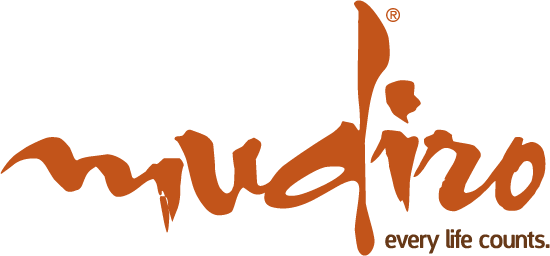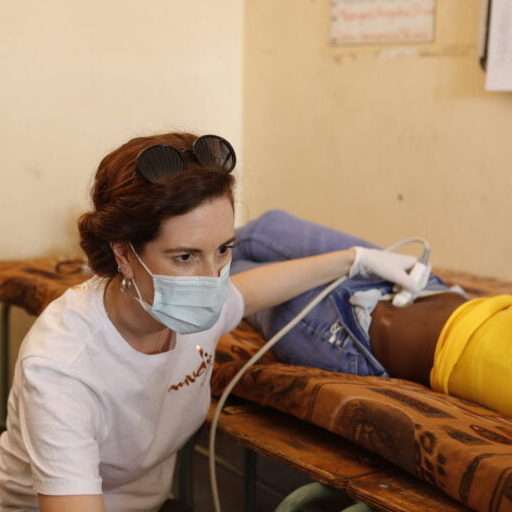For a long time I longed for my assignment in Namibia. Already in 2019, when my boss Dr. Franziska Maurer returned from Namibia for the first time, I expressed my wish to be part of the next mission. Unfortunately, Corona came then and everything has been delayed a bit. But now in August/September 2022 I was allowed to be at the start. The anticipation was great and so are the impressions and memories gained!
Grootfontein
Upon our arrival in Windhoek, we were met by Barbara herself. Although I had never met Barbara before, it seemed as if I had known her for a long time. Her uncomplicated, open and enthusiastic manner, which I had already experienced through short phone calls and a lot of emails, multiplied even more when we got to know her personally. She was also the one who chauffeured us to our first place of stay, Grootfontein. Here we spent the first week in a cozy guesthouse with wonderful hosts. As befits the Swiss, we cycled the few minutes each day to the Grootfontein State Hospital, where we were warmly welcomed by the team of doctors present. They kept the mornings free for us and listened with great interest to our presentations. Before starting the regular work on the wards or in the outpatient department, we had a hearty breakfast every day at about 11:00, which usually consisted of rooibos tea or coffee and toast and sausages. After that, we assisted the local doctors in their work, especially by teaching them how to use gynecological and obstetric ultrasound. We also got to spend our lunches with the team and enjoyed incredibly delicious, albeit meat-heavy, local dishes every day (although vegetables and side dishes left nothing to be desired, so vegetarians definitely got their money’s worth as well). The shared meals allowed us to get to know the young doctors and their daily lives even better and were an enrichment.
Andara
The second week we spent in the Mudiro-Container village in Andara. We taught a group of about 10 young doctors who had traveled several hundred kilometers to participate in the Mudiro Academy. The days were divided between a theoretical part in the morning, where the focus was also on ultrasound examination and gynecological screening, and a practical part in the afternoon, where we were allowed to use the facilities of the Andara District Catholic Hospital to train the doctors in ultrasound examination. We shared the training with Dr. Corinne Rindisbacher, who took over the training in internal and general medicine, so we spent the second part of the week with the local doctors from the Andara Hospital, in order to give them a few tips on the way.
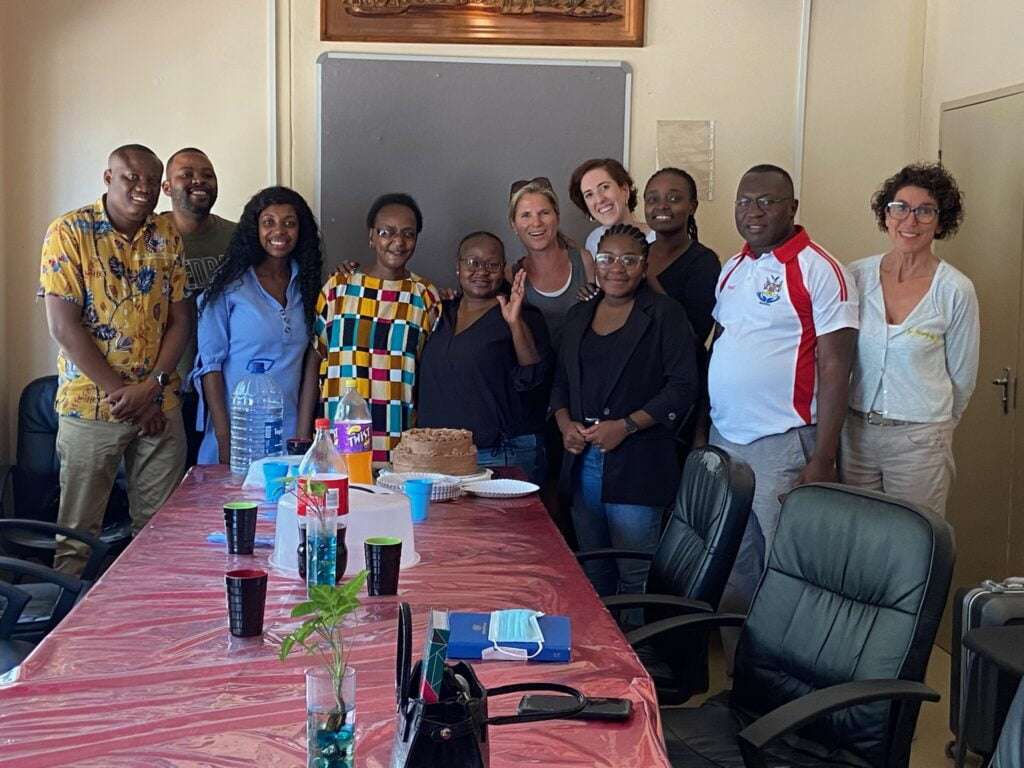
Outreach
The much-anticipated and long-awaited highlight followed in the third week. With three packed 4×4 cars we went into the Namibian bush! Unfortunately, the mobile clinic under construction was not completed in time, so we conducted the examinations in spontaneously converted classrooms on children’s desks lined up next to each other. The patients did not seem to mind this, which was definitely understandable considering the lack of medical care or the fact that it could only be reached after days of walking.
I am extremely excited about the future when the Mobile Clinic will be able to drive over the bumpy and narrow sandy roads and provide basic gynecological care, especially cervical cancer screening, directly on site. The “cancer smear test”, which is known everywhere in Namibia, is something that in Namibia, if at all, only the women in the metropolitan area of Windhoek receive, and even there, one can hardly speak of regular screening. Mudiro is trying to change this with the Mobile Clinic, the sponsored equipment and materials, and in cooperation with the state, so that also in Namibia, as already in some surrounding countries, a sustainable cancer screening can be carried out.
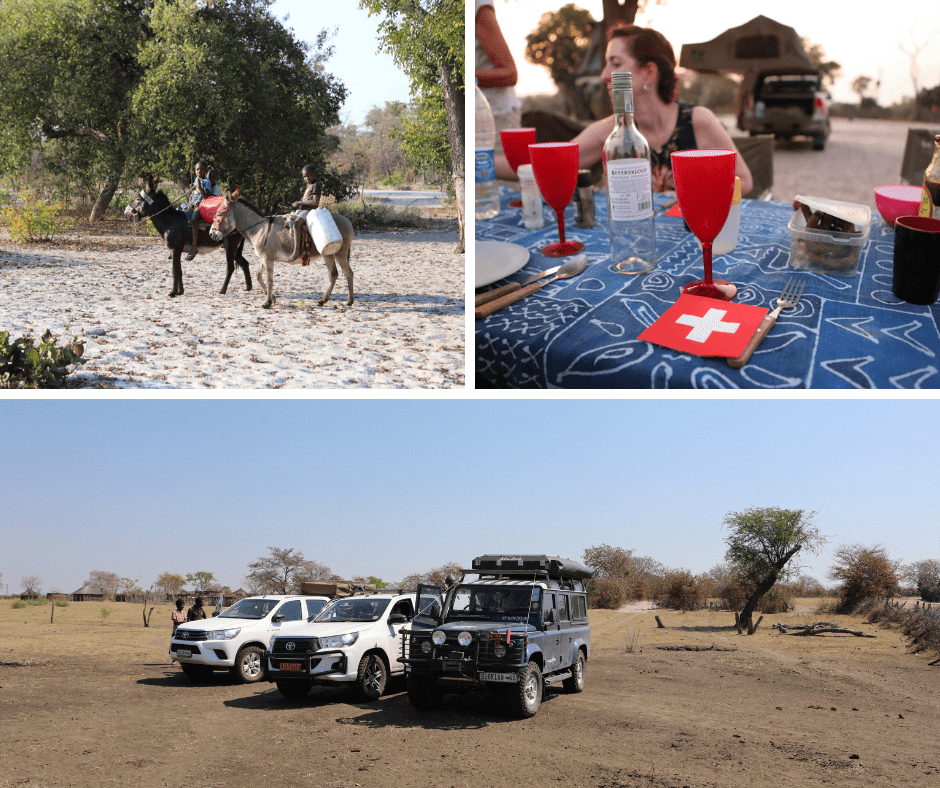
General impressions
As a still rather “young” senior physician, who obtained her specialist’s degree four years ago and still remembers the first time with such a new responsibility well, it is unimaginable what the young doctors of Namibia already have to accomplish after their complete basic training. They are doctors in further training (comparable to our resident doctors here), who maintain the care in these district hospitals and carry the responsibility. It is therefore not surprising that the knowledge is broad, but in part correspondingly superficial.
What is a standard part of basic gynecological and obstetrical training in Switzerland and is meticulously taught to young doctors immediately after leaving the state and when they start their first job, seems to be of little importance in Namibian education and training. Diagnostics by means of ultrasound is almost indispensable in our gynecology. And although the hospitals visited (especially thanks to the support of Mudiro) have amazingly modern and good ultrasound equipment and probes, these are still hardly used for advanced diagnostics in gynecology and obstetrics. In particular, transvaginal sonography, in contrast to our latitudes, has hardly any value. We very much hope that with our teachings we can show the local doctors that ultrasound is a very helpful and relatively simple tool and take away their “fear” of this examination. Especially since the Namibian patients, despite the intimacy of vaginal ultrasound, were very open to this examination if adequately explained and performed.
This seems to me to be the perfect transition to another, unfortunately very sobering impression: the way the patients are treated and informed. For us it is unimaginable how the colleagues there deal with the patients. There are hardly any explanations of the findings or diagnoses and the instructions given to the patients are unkind and demanding. Given the workload for the young doctors, who cover the entire hospital in small teams, this is understandable to a certain extent, and yet, I think, there is a lot of need for clarification here, especially in such an intimate specialty as gynecology.
The icing on the cake
A trip to Namibia without a safari experience would probably not be a real trip to this country. I am very grateful that Barbara and Mudiro allowed us to spend the weekends on excursions to the various national parks. This offered a welcome change from the many, sometimes intense, impressions of everyday hospital life. Not to mention that they are simply unforgettable experiences, which were revealed to me in this wilderness, which was so foreign to me until then!
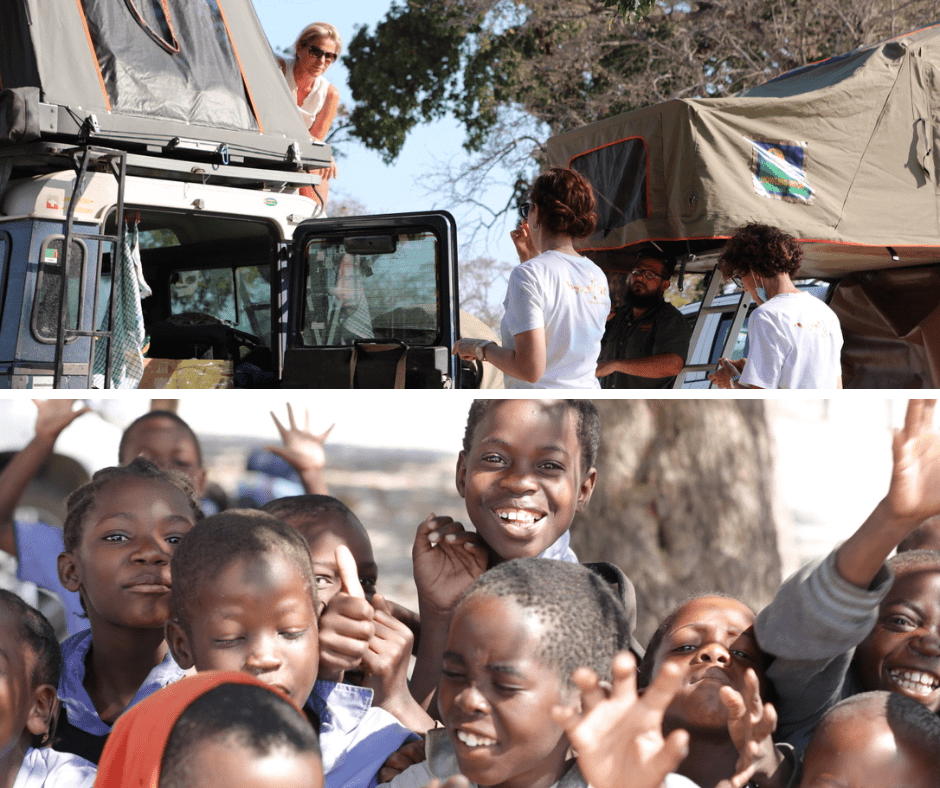
~ Dr. Daphné Dougoud
